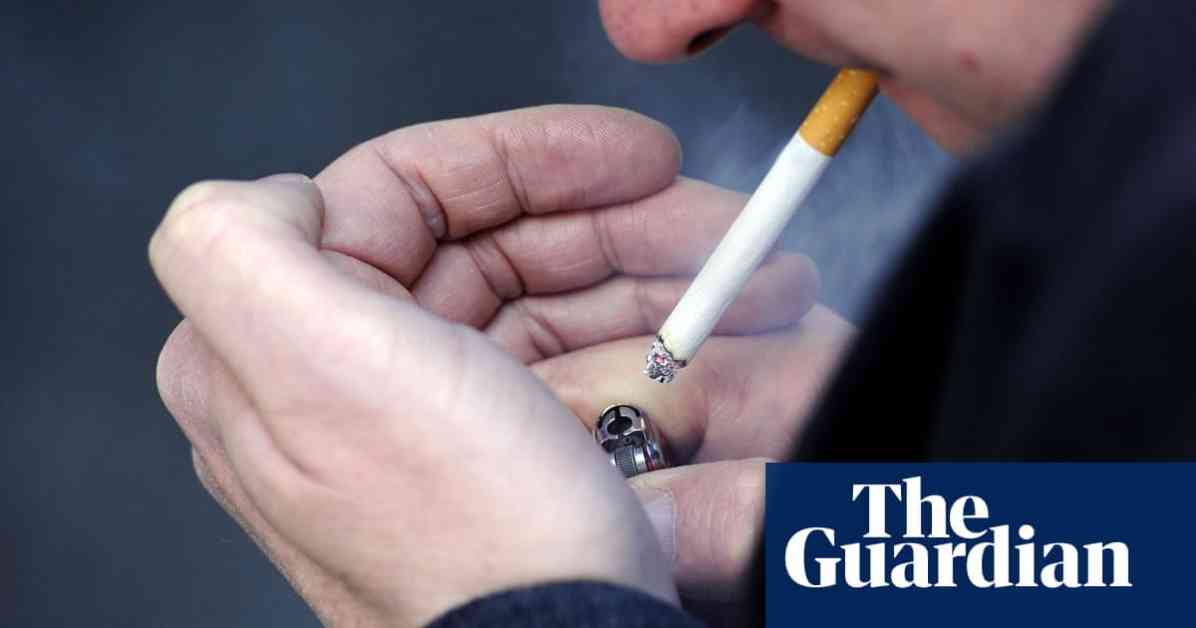UK MPs Urged to Reject Freebies from Tobacco, Alcohol, and Junk Food Companies
Amid growing concerns over the influence of tobacco, alcohol, and junk food companies on lawmakers, more than 100 health groups are calling on UK Members of Parliament to refuse gifts and hospitality from these industries. The coalition of doctors’ groups, health charities, and children’s organizations is pushing for greater transparency and integrity in public life by urging MPs to reject offers of freebies from companies that contribute to illness and death in society.
The Impact of Unhealthy Products Industries
Alcohol, tobacco, and unhealthy food are identified as the three biggest killers in society, with alcohol alone claiming 10,000 lives in 2022 – the worst on record. These industries often employ underhand tactics to downplay the harm caused by their products, delay policies aimed at reducing that damage, and distort scientific evidence to protect their sales. By offering gifts, benefits, and hospitality to MPs, they seek to cultivate allies and influence decision-making in their favor.
Prof Sir Ian Gilmore, chair of the Alcohol Health Alliance (AHA), emphasized the detrimental effects of these industries on public health, stating, “MPs are expected to make decisions based on the best interests of their constituents, but lobbying tactics such as receiving gifts and benefits from these industries can compromise impartiality and lead to conflicts of interest.”
Challenging the Influence of Unhealthy Product Industries
In response to the pervasive influence of tobacco, alcohol, and junk food companies on lawmakers, the AHA, Obesity Health Alliance (OHA), and Action on Smoking and Health (ASH) have released a joint report exposing the tactics used by these industries to gain political influence. These tactics include minimizing the harm of their products, using legal threats to delay public health policies, distorting scientific evidence, and providing gifts and hospitality to MPs.
The report highlights the need for greater transparency and accountability in the interactions between MPs and unhealthy product industries. By accepting gifts and benefits, MPs risk compromising their objectivity and impartiality when making decisions that impact these industries. The report calls for stricter regulations on lobbying practices and gifts to ensure that lawmakers act in the best interests of the public.
Examples of Industry Influence on Lawmakers
Several instances of industry influence on lawmakers have been documented, raising concerns about conflicts of interest and compromised decision-making. Former Conservative MP Thérèse Coffey accepted hospitality worth £922.80 from a pub and beer group, Greene King, before becoming the health secretary and opposing public health initiatives. Similarly, former Tory MP Giles Watling received hospitality from Japanese Tobacco International and later proposed amendments to tobacco legislation that favored the industry.
In a controversial move, the Budweiser Brewing Group sponsored a fundraising event for Labour general election candidates, raising questions about the influence of alcohol companies on political campaigns. Other companies, such as Diageo and Heineken, have hosted dinners and provided tickets to sporting events for MPs, further blurring the lines between industry interests and legislative decision-making.
Addressing the Influence of Unhealthy Product Industries
To combat the undue influence of tobacco, alcohol, and junk food companies on lawmakers, health groups are calling for stricter regulations and transparency measures. The Academy of Medical Royal Colleges, Cancer Research UK, and the British Heart Foundation are among the 100-plus organizations supporting efforts to limit industry lobbying and gifts to MPs.
Health Secretary Wes Streeting has criticized companies like KFC for challenging local councils’ efforts to restrict the opening of fast food outlets, highlighting the need for stronger regulations to protect public health. The OHA, AHA, and ASH are advocating for tighter restrictions on gifts to MPs and increased transparency in interactions between lawmakers and unhealthy product industries.
Public Opinion on Industry Influence
Recent polling shows that the majority of voters want the government to be shielded from the influence of tobacco, alcohol, and food and drink industries when formulating health policies. Large majorities express concerns about industry lobbying and the potential for conflicts of interest to influence legislative decisions. The public is increasingly aware of the impact of industry influence on public health initiatives and supports measures to limit industry access to lawmakers.
Moving Forward: Ensuring Integrity in Public Life
As the debate over industry influence on lawmakers continues, the importance of transparency and integrity in public life cannot be overstated. MPs play a crucial role in shaping public health policies and must prioritize the well-being of their constituents over the interests of unhealthy product industries. By rejecting gifts and hospitality from tobacco, alcohol, and junk food companies, lawmakers can demonstrate their commitment to serving the public good and upholding ethical standards in governance.
In conclusion, the call for MPs to reject freebies from tobacco, alcohol, and junk food companies reflects a broader effort to safeguard public health and ensure that legislative decisions are made in the best interests of the public. By pushing for greater transparency and accountability in the interactions between lawmakers and industry lobbyists, health groups are advocating for a more ethical and principled approach to governance. It is essential for MPs to prioritize public health over industry interests and uphold the integrity of the legislative process.












